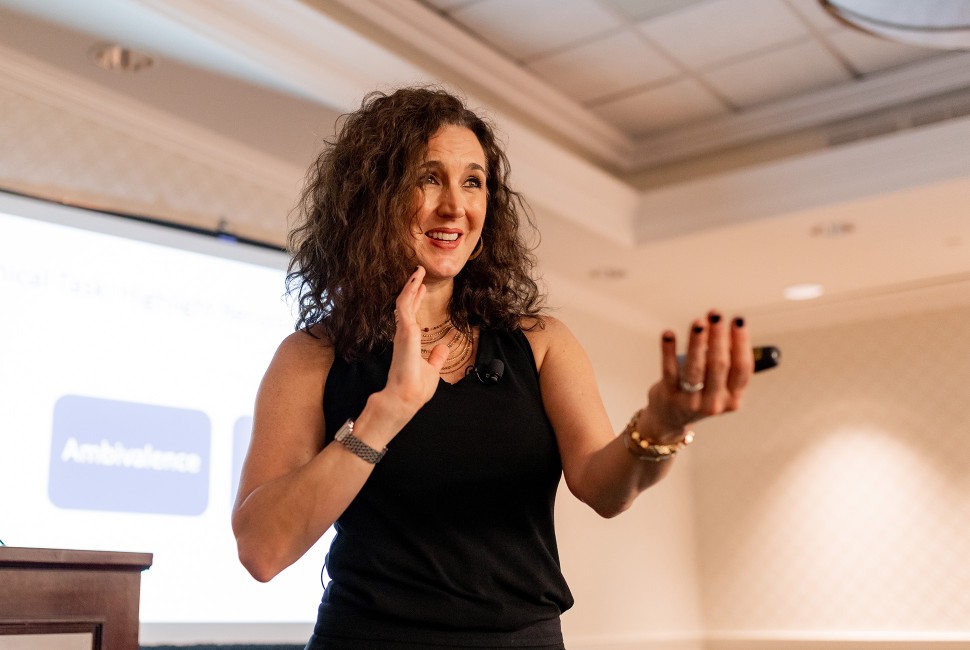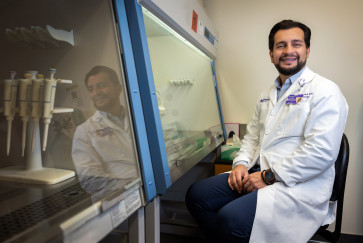Love is the muse of every musician, painter and writer since the beginning of time; the thing that clouds the minds of teenagers and elders alike; and the feeling that drives many to do the unimaginable. Alexandra Solomon, a clinical assistant professor in the department of psychology at Northwestern University and lecturer at the School of Education and Social Policy, knows the subject better than anyone. At least, that’s what her students say.
For 25 years, Solomon has taught Building Loving and Lasting Relationships: Marriage 101 at Northwestern University. Over the span of its existence, the course has received local, national and international media attention, making it one of Northwestern’s premiere attractions.
“The second the course opens up, both the class and waitlist fills immediately,” she said. “I’ll get a flurry of emails from students saying, ‘I need to take this class before I graduate. My mom listens to your podcast.’ It’s this lore about the class that keeps it in the zeitgeist.”
As Valentine’s Day approaches, Solomon spoke with Northwestern Now about the popularity of the class, what couples can do in these times of uncertainty and her rules of engagement.
As we celebrate the 25th anniversary of Marriage 101, what do you think brings students back year after year?
Part of it is just campus lore. Students hear about it from other students and want in. The other part is college is an interesting time when it comes to love. I remember being in college and sitting on the floor of someone’s dorm room, just unpacking all the complexities about love and relationships. This class captures something that is intuitive and innately a source of deep curiosity, confusion and concern for students.
What has kept you engaged with the material all this time?
People often say to me, ‘You’ve been teaching it for so long, it must be easy.’ But the truth is our understanding of love — as a society — continues to evolve. My syllabus is never finite. My own sense of what’s salient continues to shift. Because of that, the course continues to be challenging and thought provoking for me. I don’t feel done. I don’t feel like I’ve got it mastered. That’s exciting.
What’s the difference between students now versus then?
I’m so impressed by the amount of sophistication that our students come in with now. The first students 25 years ago were raised by Baby Boomers and these students were raised by Gen X. With these current students, I can feel they were raised by parents who watched Oprah, read self-help, etc. It’s clear that many of them have already been in therapy and are unafraid of self-reflection. They are concerned about not only hurting themselves, but hurting others. That speaks to our cultural evolution.
What’s your advice for couples for sustaining romantic relationships in times of uncertainty?
During times when we are feeling uncertain, frightened, horrified, the most important thing that your relationship can be is a soft place to land. To be able to feel like your partner’s presence is an exhale. It’s vital.
When the world is falling apart, the temptation is to start perceiving our partner as not on our team. I want people to understand that when our own nervous systems are dysregulated, our perceptions change, and we are primed to perceive danger everywhere — including in our partner’s eyes. Check in with yourself. Ask yourself ‘What degree is my partner actually attacking me’ versus ‘What degree am I just depleted and scared?’ Sometimes people just need a reassuring hug.
What’s your advice for people trying to find love?
- The key to finding the right partner is becoming the right partner. Ask yourself, do I embody the qualities that I am looking for in someone else?
- When it comes to first dates, you shouldn’t go into it putting the other person under a microscope. Nor is it a situation where you should be performing or trying to impress them. A first date is merely two people playing with the energy between them. What is the dynamic that the two of you could possibly create here? It’s just a conversation.
- Lastly, whether it’s a first date or a long-term relationship, understand that our childhood and family of origin experiences affect our relationships, romantic or otherwise. We come into relationships with emotional baggage and the quality of our romantic relationships hinges on our ability to acknowledge that or not.
Listen to Solomon’s podcast, “Reimagining Love,” available on Apple Podcasts. Read more about Professor Solomon’s work.


